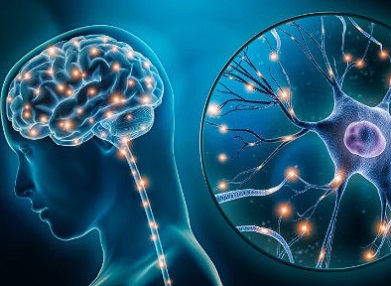BREAKING! Study Finds That SAR-CoV-2 Causes Electrical Perturbations In The Brain’s Synapses!
Nikhil Prasad Fact checked by:Thailand Medical News Team Mar 30, 2024 1 year, 10 months, 2 weeks, 5 days, 10 hours, 44 minutes ago
COVID-19 News: The emergence of the severe acute respiratory syndrome coronavirus 2 (SARS-CoV-2) and the ensuing coronavirus disease 2019 (COVID-19) pandemic has profoundly impacted global health, economies, and societal norms. Beyond its well-documented respiratory manifestations, COVID-19 has presented a puzzling array of neurological complications. From mild cognitive impairments to severe neurological sequelae, the virus's impact on the central nervous system (CNS) has become a focal point of scientific inquiry and medical concern.

SAR-CoV-2 Causes Electrical Perturbations In The Brain’s Synapses
The Collaborative Pursuit of Understanding
In a collaborative effort spanning esteemed institutions such as Institut de Recherche en Infectiologie de Montpellier (IRIM) in France, University of Montpellier, CNRS-Université de Strasbourg in France, Infrastructure Nationale de Protéomique-France, Montpellier University Hospital, VIB-UGent Center for Medical Biotechnology in Belgium, VIB-Belgium, Ghent University-Belgium, and University of Amsterdam in the Netherlands, a groundbreaking study that is covered in this
COVID-19 News report, has delved into the intricate interactions between SARS-CoV-2 and the brain's synaptic network. This comprehensive exploration seeks to unravel the molecular dynamics underlying COVID-19-related neurological disorders.
The Neurological Spectrum of COVID-19
COVID-19 has transcended its initial characterization as a respiratory illness to manifest a broad spectrum of neurological manifestations. Patients have reported symptoms ranging from headaches, anosmia, and ageusia to more severe complications like strokes, encephalitis, and cognitive impairments. The prevalence of neuropsychiatric symptoms and abnormal electroencephalograms in COVID-19 patients underscores the virus's multifaceted impact on the CNS.
Unmasking the Molecular Mechanisms
Central to understanding the neurological repercussions of SARS-CoV-2 is unraveling the virus's interaction with neural cells. While the CNS traditionally exhibits low expression of the angiotensin-converting enzyme 2 (ACE2) receptor, the primary cellular entry point for SARS-CoV-2, recent studies have highlighted the virus's ability to infiltrate the brain parenchyma, albeit to a limited extent.
The Study's Methodological Odyssey
The research consortium embarked on a methodological odyssey encompassing diverse experimental models to decipher SARS-CoV-2's impact on neural synapses. From cerebral organoids mimicking brain tissue to organotypic cultures of human brain explants and post-mortem brain samples from COVID-19 patients, each approach offered unique insights into the virus's neuropathogenic mechanisms.
Insights from Cerebral Organoids
Cerebral organoids, 3D models derived from stem cells, provided a platform to study the virus's behavior within a microenvironment resembling the developing brain. Despite their immaturity, these organoids exhibited varying degrees of pe
rmissiveness to SARS-CoV-2, highlighting the complexity of viral tropism within neural cell populations. Notably, the virus induced aberrant presynaptic morphology and upregulated synaptic components, hinting at a disruptive influence on synaptic homeostasis.
Organotypic Cultures: Bridging the Gap to Reality
Organotypic cultures of human brain slices offered a bridge between in vitro models and real-world neuropathology. These ex-vivo cultures preserved tissue architecture and cellular composition, allowing researchers to observe SARS-CoV-2's impact on mature neural networks. The observation of abnormal synaptic structures and perturbed electrical activity post-viral exposure underscored the virus's disruptive potential at the synaptic level.
Insights from Post-Mortem Brain Samples
Analysis of post-mortem brain samples from COVID-19 patients revealed intriguing findings. While traditional pathological markers were absent, the presence of viral RNA in specific brain regions suggested the possibility of viral persistence within the CNS. This phenomenon could elucidate the enduring neurological sequelae observed in COVID-19 survivors, emphasizing the need for long-term neurological monitoring and intervention strategies.
Deciphering the Synaptic Signature of SARS-CoV-2
Central to the study's revelations was the intricate synaptic dysregulation induced by SARS-CoV-2. Mass spectrometry-based proteomics unveiled significant post-translational modifications in synaptic proteins, indicative of the virus's direct impact on synaptic function. The upregulation of Latrophilin-3 (LPHN3), a key player in synapse formation, emerged as a pivotal mechanistic link between viral exposure and synaptic perturbations.
Synaptic Plasticity in Distress
The study's findings pointed towards a scenario where viral particles associate with trans-synaptic sites, leading to prolonged disruptions in synaptic plasticity and electrical transmission. This aberrant synaptic activity correlated with the diverse neurological manifestations observed in COVID-19 patients, ranging from mild cognitive deficits to severe encephalopathies.
Clinical Implications and Future Directions
The implications of this research extend far beyond the realm of academia. By elucidating the molecular intricacies of SARS-CoV-2's impact on neural synapses, the study paves the way for targeted therapeutic interventions aimed at mitigating COVID-19-related neurological disorders. Future research endeavors may focus on developing neuroprotective strategies, enhancing neuroplasticity, and exploring pharmacological interventions to restore synaptic homeostasis in COVID-19 survivors.
A Call for Collaborative Vigilance
As the global healthcare community continues to navigate the challenges posed by COVID-19, collaborative vigilance in monitoring and addressing neurological sequelae remains paramount. Longitudinal studies, multidisciplinary collaborations, and innovative research methodologies will be instrumental in unraveling the enduring mysteries of NeuroCOVID and devising effective strategies to safeguard neurological health amidst the ongoing pandemic.
Conclusion: Illuminating the Synaptic Saga of NeuroCOVID
In conclusion, the study's exhaustive exploration into SARS-CoV-2's impact on neural synapses represents a paradigm shift in NeuroCOVID research. By unraveling the intricate molecular signatures of synaptic dysregulation, the researchers have laid a robust foundation for targeted interventions and personalized approaches in managing COVID-19-related neurological disorders. As the scientific community marches forward in its quest for comprehensive understanding and therapeutic breakthroughs, the synaptic saga of NeuroCOVID stands as a testament to resilience, collaboration, and unwavering dedication to unraveling the complexities of the human brain in the face of a global pandemic.
The study findings were published in the peer reviewed journal: Nature Microbiology.
https://www.nature.com/articles/s41564-024-01657-2
For the latest
COVID-19 News, keep on logging to Thailand Medical News.
